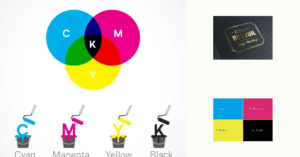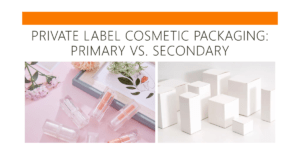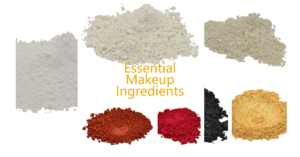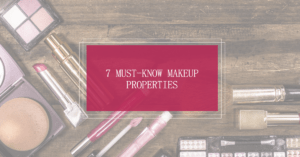Introduction
Starting a private label cosmetics business is an exciting and best opportunity for those who are passionate about beauty and want to create their own unique line of products with lowest cost. In this article, we will guide you through the process of launching your own private label cosmetics business, from market research to product formulation, marketing, and distribution. By following these steps, you’ll be well on your way to building a successful beauty business.
Table of Contents
Market Research
Identifying Your Niche
Before diving into the world of private label cosmetics, it’s crucial to identify your niche in the market. What kind of products do you want to offer? Are you focusing on skincare, makeup, or hair care? Are your products designed for specific demographics, like mature skin or men’s grooming? Determining your niche will help you build a strong brand and create products that resonate with your target audience.
Understanding Your Target Audience
Once you’ve identified your niche, it’s time to get to know your target audience. Conduct research on your ideal customers, including their age, gender, location, and preferences. By understanding your target audience, you can create products that cater to their specific needs and develop marketing campaigns that speak to them directly.
Competitive Analysis
Researching your competition is an essential step in launching your private label cosmetics business. Look at other brands in your niche and examine their product offerings, price points, marketing strategies, and online presence. Analyzing your competition will help you identify gaps in the market, opportunities for innovation, and areas where you can differentiate your brand.
Creating Your Brand

Developing a Brand Identity
Your brand identity is the foundation of your private label cosmetics business. It includes your brand’s mission, vision, values, and overall aesthetic. Develop a strong brand identity that sets you apart from the competition and reflects the essence of your products.
Logo Design
A memorable logo is a key element of your brand identity. It should be simple, yet distinctive, and easily recognizable. Work with a graphic designer to create a logo that reflects your brand’s personality and can be used on product packaging, marketing materials, and online platforms.
Product Packaging
The packaging of your cosmetics products plays a significant role in attracting customers and building brand loyalty. Invest in high-quality packaging that aligns with your brand’s aesthetic and communicates the value of your products. Consider using sustainable materials to appeal to environmentally conscious consumers.
Formulating Your Products
Finding a manufacturers and suppliers in China
Partnering with a good manufacturers is crucial to the success of your private label business.Research manufacturers that specialize in your niche and offer services such as product formulation, packaging, and labeling. Look for manufacturers that adhere to good manufacturing practices (GMP) and have a track record of producing high-quality products.
Product Development Process
Work closely with your chosen manufacturer to develop your product line. Provide them with a clear brief outlining your desired
formulations, ingredients, and packaging. Engage in a collaborative process, providing feedback and making adjustments as needed. Ensure that your products meet your quality standards and align with your brand’s values.
Quality Assurance
Implement a robust quality assurance process to guarantee that your cosmetics products are safe and effective. Work with your manufacturer to conduct necessary testing, such as stability, safety, and performance tests. Keep detailed records of your test results and certifications to ensure compliance with industry regulations.
Marketing Your Private Label Cosmetics Business
Online Marketing
Having a strong online presence is essential for your private label cosmetics business. Create a professional website that showcases your products and tells your brand’s story. Optimize your website for search engines (SEO) to drive organic traffic and implement conversion optimization techniques to increase sales.
Social Media
Social media platforms like Instagram, Facebook, and Pinterest are powerful marketing tools for private label cosmetics brands. Develop a consistent posting schedule, engage with your audience, and share high-quality content that showcases your products and reflects your brand’s aesthetic.
Influencer Marketing
Collaborating with beauty influencers can help you reach a wider audience and build credibility for your brand. Identify influencers in your niche with a strong following and an authentic connection to their audience. Partner with them for product reviews, tutorials, and sponsored posts to generate buzz around your brand.
Content Marketing
Creating valuable and engaging content can help you attract and retain customers. Develop a content marketing strategy that includes blog posts, videos, and other multimedia content related to your niche. Share tips, tutorials, and industry news to position your brand as a thought leader and keep your audience engaged.
Distribution Channels
Selling Online
Selling your private label cosmetics products online is a cost-effective and accessible distribution channel. Utilize your website, social media, and online marketplaces like Amazon and Etsy to reach customers around the world.
Private label cosmetics wholesale
Partnering with retailers and distributors can help you expand your brand’s reach and increase sales. Research potential wholesale partners, such as beauty supply stores, salons, and spas, and create a compelling wholesale program to attract them.
Retail
Opening your own brick-and-mortar store or securing shelf space in established retail locations can help you build brand recognition and offer customers a hands-on shopping experience. Consider this option as your business grows and gains traction in the market.
Conclusion
Launching a private label cosmetics business can be a rewarding and profitable venture for those who are passionate about beauty. By conducting thorough market research, creating a strong brand identity, formulating high-quality products, and implementing effective marketing and distribution strategies, you can turn your vision into a successful business. Stay focused, adaptable, and persistent, and watch your private label cosmetics brand flourish.
FAQs
Is private label cosmetics profitable?
Yes It is ,private label cosmetics can be a profitable business. Generally speaking, private label cosmetics are more profitable because it is usually easier to keep costs down – with certain products, manufacturing and distributing a private label brand can cost 40%-50% less than a name-brand . However, profitability depends on a variety of factors such as the quality of the products, the marketing strategy, and the competition in the market .
How to start private label cosmetics?
1.Do your research: Make sure you know what you’re getting into before starting a cosmetics business.
2.Determine your niche: Determining your target audience will also assist you when it comes to finding a private label cosmetics partner.
3.Develop your brand: Choosing your target audience and developing your brand often go hand-in-hand.
4.Find a supplier: Starting your own cosmetics line begins with finding a supplier that you’re happy with.
What is a private label cosmetic company?
Private label cosmetics are beauty and personal care products that are manufactured by a third-party manufacturer for retailers. These products may be sold under the retailer’s name or a unique brand created exclusively for the retailer . As a consumer, you get to choose everything about the product, including the product’s packaging, its formula, and the design of the label, simply words to say ( Are products manufactured by a third-party company but sold under a retailer’s brand name).
How does private label cosmetics work?
Private labeling is the practice of applying a brand to a product that’s made by another company. Private-label manufacturers secure deals with individuals or brands to sell their products under the manufacturer’s name with no attribution. The products can be sold independently or in support of other products.
In the case of private label cosmetics, you would work with a third-party manufacturer to create your own custom branded cosmetic products. You would direct the third-party manufacturer in terms of materials and ingredients, quality, and production rate. You would also have control over pricing, marketing, and branding.
How much does it cost to start a private label cosmetics business?
The initial investment required to start a private label cosmetics business varies depending on factors such as product range, packaging, and marketing efforts. It’s essential to create a detailed business plan and budget to estimate your startup costs accurately.
How do I ensure that my private label cosmetics products are safe and compliant with regulations?
Work with a reputable manufacturer that adheres to good manufacturing practices (GMP) and conducts thorough testing on your products. Stay informed about industry regulations and ensure that your products meet all safety and compliance standards.
Can I start a private label cosmetics business from home?
Yes, you can start a private label cosmetics business from home, focusing on online sales and marketing. However, as your business grows, you may need to consider expanding to a dedicated workspace or partnering with retailers and distributors.
How do I protect my private label cosmetics brand and products
from copycats and competitors?
To protect your brand and products, consider trademarking your brand name, logo, and product names. Work with a legal professional to ensure your intellectual property rights are properly protected. Additionally, focus on building a strong brand identity and customer loyalty to differentiate your products from competitors.
How long does it take to start seeing profits in a private label cosmetics business?
The timeline for profitability in a private label cosmetics business depends on factors such as initial investment, marketing efforts, and sales channels. With a solid business plan, effective marketing strategies, and high-quality products, you could start seeing profits within a few months to a couple of years.






